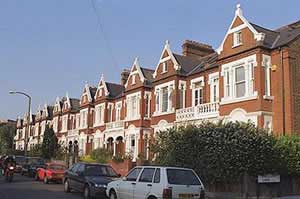 Although people often refer to “the property market”, it would be more accurate to say “the property markets” since the UK is really made up of a number of local property markets which may have certain traits in common and which may have the potential to influence each other, but which really work to their own dynamics and some factors which are massively important in some areas may have much less relevance in others.
Although people often refer to “the property market”, it would be more accurate to say “the property markets” since the UK is really made up of a number of local property markets which may have certain traits in common and which may have the potential to influence each other, but which really work to their own dynamics and some factors which are massively important in some areas may have much less relevance in others.
For example, the property market in the north of England is staying fairly steady (even though sales volumes are down for some kinds of properties in some areas, sales values continue to be robust), parts of the south are showing distinct signs of feeling the Brexit blues.
Prime Central London beings to see major price falls
Prime Central London is one of the wealthiest areas in the UK and adding this fact to the fact that it is located, quite literally, in the centre of the capital, means that it is only to be expected that it will have some of the highest property prices in the UK. That is still true, even with Brexit on the horizon, but it is also true that prices in prime central London have been on a sharp downward trend, with double-digit falls in their value.
It’s probably no surprise that the biggest drops have been seen in the areas of prime central London which already had the very highest property values. For example, Kensington and Chelsea, the most expensive location in the UK, let alone in London, saw prices drop by 21.2% over the last 12 months while Westminster, which is the second most expensive location in the UK, saw price drops of 24.8% over the same period. Hammersmith and Fulham rounds out the “top three” areas for prices falls, with a reduction of 19%. Camden and Tower Hamlets were less badly hit with reductions of 11.5% and 11.3% respectively.
Brexit is not the only issue
While it may be tempting to assume that this situation has been caused entirely by the Brexit effect, it’s worth noting that there are a number of other factors which could have contributed to it. For example, the UK government has recently either made or proposed a number of changes which did not hit the media headlines in the same way as other property-related news has done, but which did serve to make life more challenging for international property investors.
Even though these measures were UK-wide, rather than specific to London, they were always likely to have far more of an impact on London (and, in particular, prime central London) due to the fact that this market always had a fairly high percentage of international buyers when compared to other parts of the UK, including the north of England. It’s also possible that these changes had less of an impact in the north of England because affordability is much better (even in prime areas) and hence there could be a higher level of motivation for international investors to stay in the market in spite of these changes.